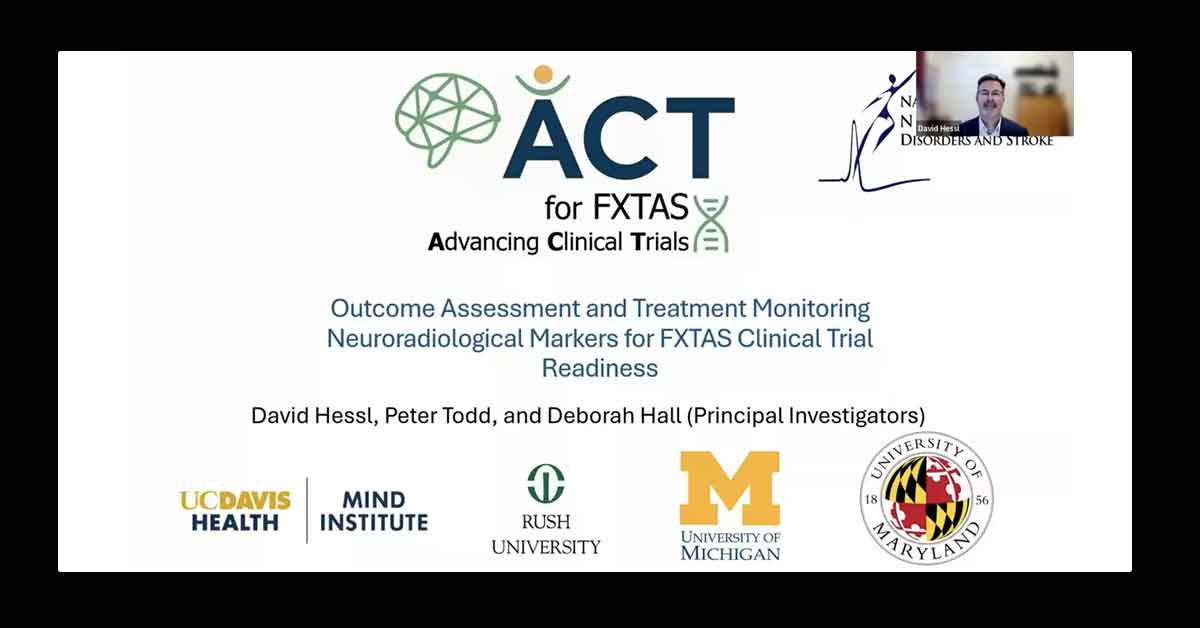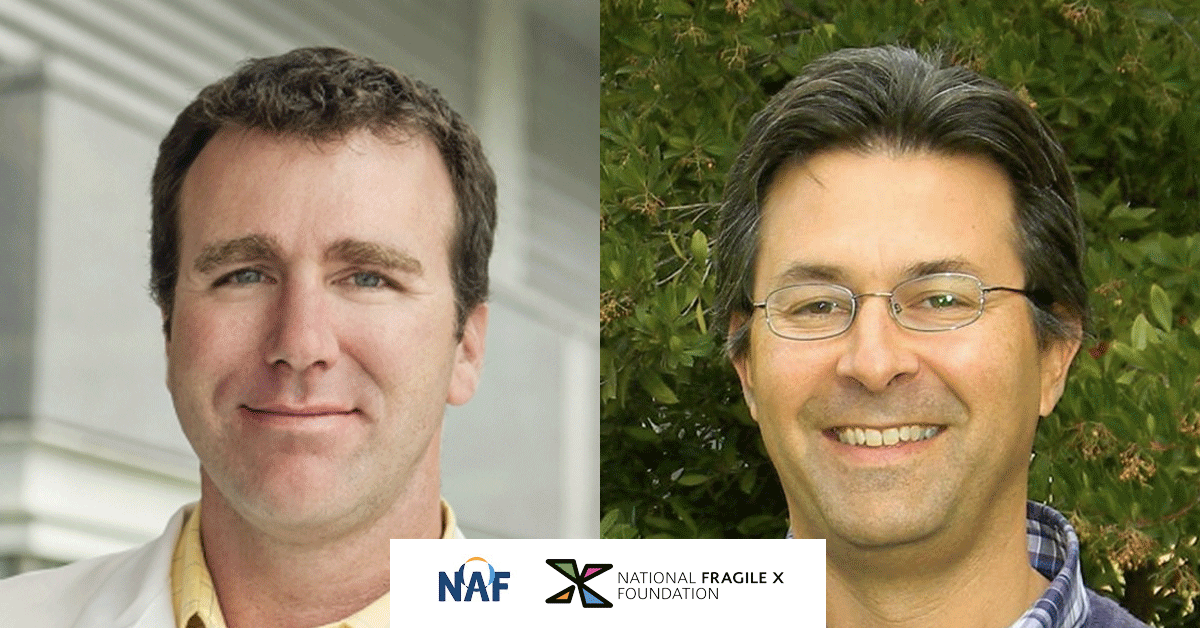Fragile X-associated Tremor/Ataxia (FXTAS) Discussion
The webinar was a facilitated one-hour Question and Answer session covering a wide-range of topics. The panelists shared resources and information during the discussion.
- Diagnosing FXTAS can be a complex process. Symptoms vary in individuals diagnosed with FXTAS, but every individual will have a FMR1 (Fragile X) premutation repeat expansion. Learn about FMR1 DNA genetic testing.
- There are clinics and research locations specializing in the treatment of FXTAS (locate the closest center HERE). If visiting a clinic is not possible, share this FXTAS Treatment Recommendation with your local healthcare provider. The FXTAS Treatment Recommendation is available in Spanish HERE.
- Treatments, interventions, and strategies are focused on reducing FXTAS symptoms and involve appropriate follow-up by a healthcare provider. While there are common symptoms, certain symptoms may be more interruptive for certain individuals, and providers will take that into consideration when choosing appropriate interventions. The panelists explained that interventions may require several weeks to evaluate the effectiveness.
- It is important to consult with your healthcare provider if considering adding or adjusting any intervention, including over-the-counter medications and supplements.
- Maintaining general health and wellness is crucial. Panelists encouraged individuals to engage in consistent and regular physical activity following the American Heart Association recommendations to support health and wellness.
- Panelists encouraged the use of supportive services and counseling for the individual, caregiver(s), and the family.
- Research is helping inform FXTAS treatments and interventions. One of the major efforts to support the future of FXTAS and broad Fragile X premutation research is the International Fragile X Premutation Registry. You can register for the International Fragile X Premutation Registry HERE.
The NFXF is looking for individuals to share their feedback about future FXTAS programming. If you or a loved one has FXTAS and you are interested in being contacted to share your feedback, please complete this form.
You can help make a difference!
Our educational resources, such as this webinar, are provided free of charge because the ability to pay should never stand in the way of giving help and hope to families living with Fragile X.
If you are able to help support these educational programs so we can continue to provide new and updated resources, please consider donating today. Your donation is tax-deductible, we have the highest ratings from independent non-profit rating organizations, and our online donation process is quick, easy, and secure.
Thank you for your support!
Additional Resources
We are excited to share information and resources on our website that was referenced during the webinar. We have included the link to additional resources and information below.
- Fragile X – Associated Tremor/Ataxia Syndrome
- Diagnosis and Treatment – FXTAS
- FXTAS with Deborah Hall – Webinar
- FXTAS Resources
- National Ataxia Foundation
- Products that may be helpful to those living with Ataxia: https://www.ataxia.org/marketplace/




